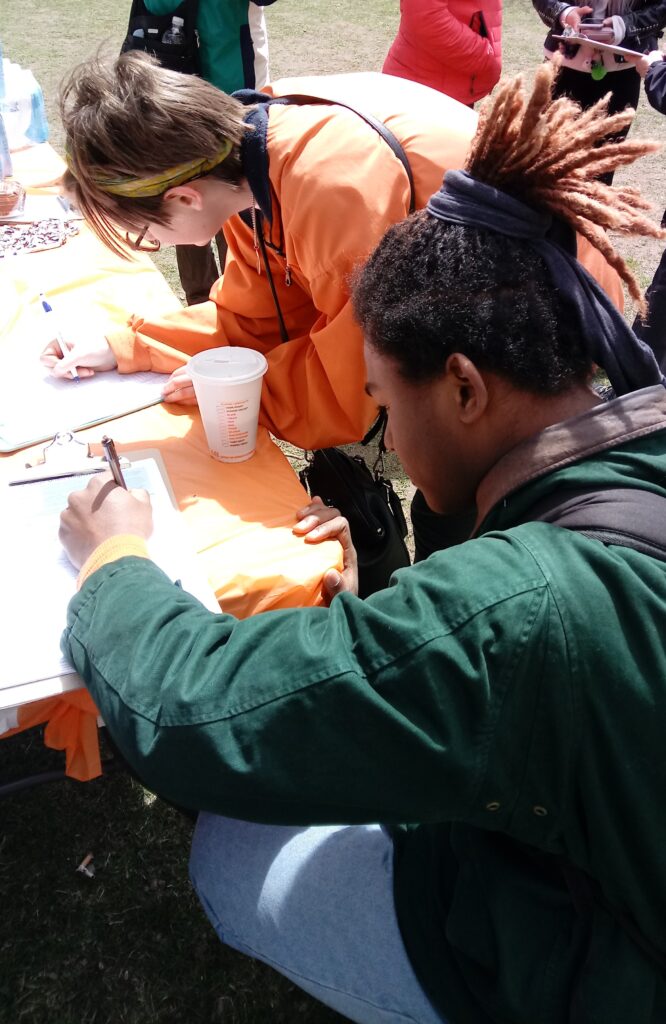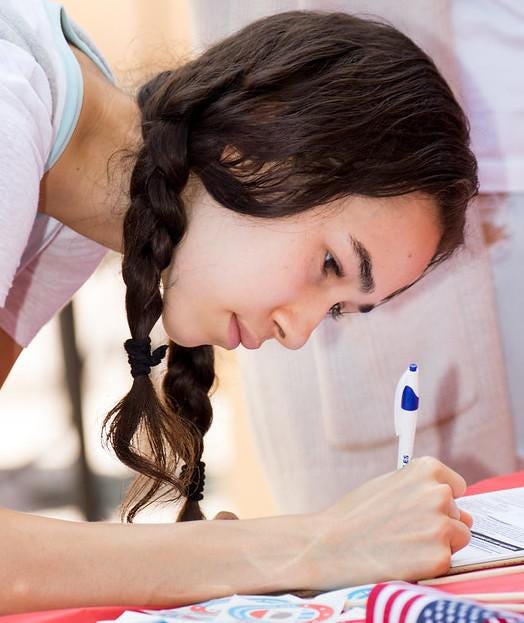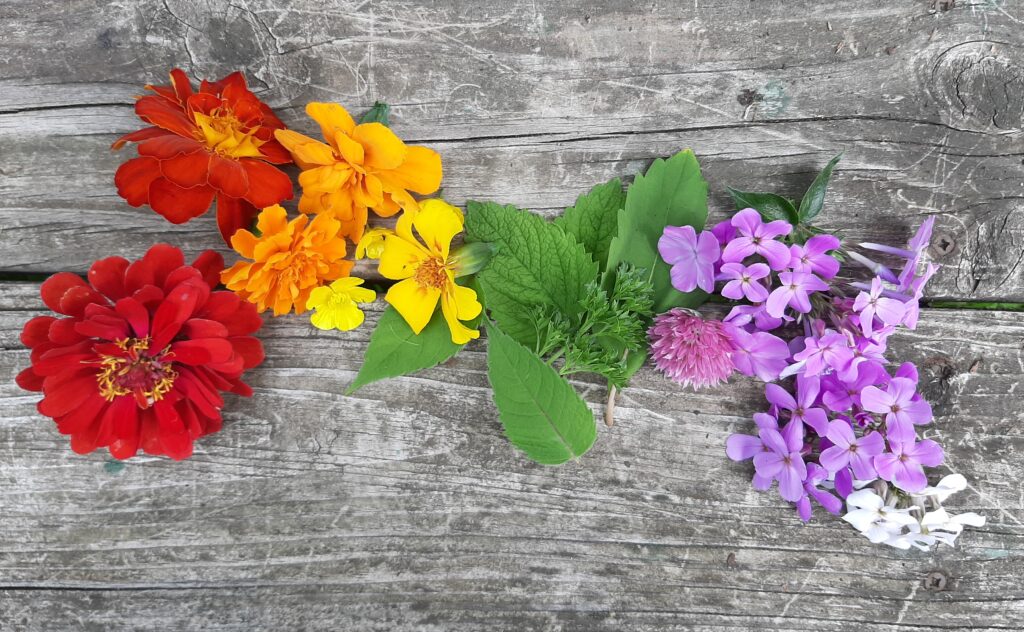 “I don’t vote,” said the eighteen-year-old student. “I hate politics. I mean, what’s it got to do with me?” But it turns out this young person identifies as LGBTQ. Politics has everything to do with her.
“I don’t vote,” said the eighteen-year-old student. “I hate politics. I mean, what’s it got to do with me?” But it turns out this young person identifies as LGBTQ. Politics has everything to do with her.
It’s not surprising that a college freshman hasn’t spent much time pondering the state of the American political landscape. She’s had a few other things to figure out, like who she is and how she’s going to tell her family about it and what she’s going to do with her life. But when she blithely informed me that she wasn’t going to bother voting in November, I was about to really let her have it, tell her a thing or two—doesn’t she know about the suffragettes, for heaven’s sake? I wanted to give her a stern lecture on the dire necessity of fulfilling her civic duty.
Fortunately, the other person at the registration table with me had more sense. She just asked the student one simple question: “Do you, or does anyone you know, identify as LGBTQ?”
And that opened the door to a conversation. About Florida and the Supreme Court and who appoints judges, and so forth. After considering a few of the rights that LGBTQ people are in danger of losing (the right to marry, the right to adopt children, the right to have the word “gay” said aloud in public schools), I could see that the student was starting to ponder. Eventually she filled out the voter registration form (and that’s not easy, it’s an intimidating, dense form with a ton of fine print, not user-friendly.) Then she wandered off to class.
But half an hour later she was back.
And she wasn’t alone. She returned to our voter registration table, driving half a dozen friends before her like an unwilling gaggle of geese. Relentlessly she lined them up and handed them voter registration forms. She explained the importance of Supreme Court judges as they filled out their forms.
This is how we get out the vote, one conversation at a time. We gather around a table.

Odd to think of “table” as a verb, as in “I tabled at the local community college the other day.” Tabling is an art. It’s a science. It’s an action.
What is tabling, exactly? It’s sitting behind a folding table on an uncomfortable folding chair—or, better, standing in front of the table—and engaging with passersby. I’ve found by far the most effective way to do this is to put it in the form of a question. “Would you like to do something about climate change?” “How do you feel about a woman’s right to choose?” or the sixty-four-thousand-dollar, all-important question: “Are you registered to vote?”
Once you’ve gotten your prey to slow their stride past your table, you’ve got them. For about eight precious seconds. Use them to make a few succinct points (“This election is vitally important for our rights, and it’s going to be so close…”) And before they make their escape, be sure to stick a piece of paper in their hand. A voter registration form, or info on early voting dates and times, or ways to contact their legislator, or whatever. If you can lure them to jot down their e-mail address on a sign-up sheet (this is a bit tougher, though) then you can follow up with more information.
I joined the League of Women Voters especially because they can table at all sorts of places, like schools, that would not allow a partisan organization. But I also table at other events, especially urban events—farmer’s markets, kid’s art festivals, Juneteenth celebrations—anywhere I’m likely to register blue voters. And Pride month is a prime opportunity to register Democrats, especially young people who may not have realized what’s at stake in this election. Everything.
***************
Dear Friends,
Are you more than a little worried about the election of 2024 and wondering what to do about it? I’ve started a substack I hope you’ll check out: The Optimistic Activist.
Every Tuesday I post some ideas for doing something. How to get out the vote, spread the word, and support progressive candidates. Ideas for simple but effective activism. As easy, as practical, as do-able as I can make them.
Together, I think, we could really make a difference.
“Optimism is a strategy for making a better future.”






Recent Comments